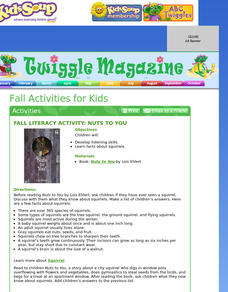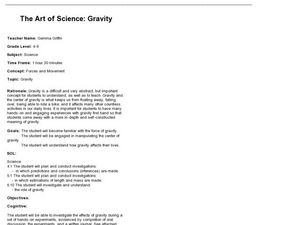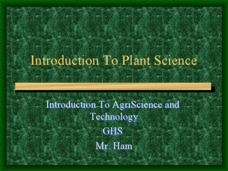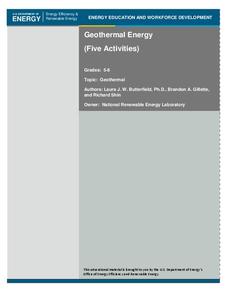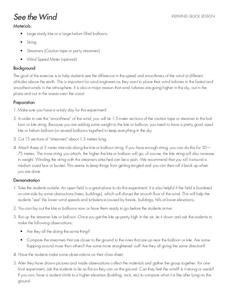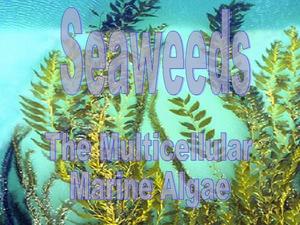CK-12 Foundation
Modern Genetics
Genetic counselors advise their clients on the chance of passing specific diseases on to their children. Pupils learn about genotypes, phenotypes, and genetics in the lesson. Matching activities, multiple-choice questions, and a...
NASA
Creating a Space Exploration Infrastructure
What will it take to explore space? Teams of pupils determine the needs of a lunar outpost and research the required systems. The pupils then learn about the past space exploration vehicles. The third and final lesson challenges project...
Virginia Department of Education
Modeling the Big Bang Theory
Young astronomers learn about the Big Bang Theory and redshift through a hands-on activity in the last installment of a three-part series. Participants draw dots on balloons and then inflate them to model how galaxies moved farther apart...
Scholastic
Study Jams! Earth's Atmosphere
Earth's thick atmosphere plays a vital role in the ability of the planet to sustain life. Learn about the layers of the atmosphere and their properties, how the gases surrounding the earth help protect the planet, and a little about...
Virginia Department of Education
Three Types of Rocks
Rock out with the second installment of a five-part series on earth materials and processes. Your budding geologists make observations of given rock samples and posit classification systems for rocks. They then learn about the...
Museum of Tolerance
Artifact Research Activity
Artifacts give us the privilege of learning about the past, may it be family, culture, or traditions. Here, class members learn about their family's past with the help of an artifact, or family heirloom. Once an artifact is...
Curated OER
Project Based Learning
What is Project-Based learning? Find out with a great informaitonal article that includeds multiple web and lesson links. Positive aspects of investigative and project based learning are some highlights you'll read about.
Code.org
Cracking the Code
Scholars learn how to crack secret codes as they continue reading from the Blown to Bits and try to crack the random substitution cipher. They also begin learning about the Vigenere cipher.
American Museum of Natural History
Dive Into Worlds Within the Sea
Make connections between ocean organisms. Individuals explore three different ecosystems in the ocean. With an online interactive, they learn how different organisms depend upon each other. Learners first answer questions to connect...
American Museum of Natural History
What's the Big Deal About Water?
It may seem simple, but water is one of the most unique substances on Earth. An interactive online lesson describes its properties and importance in so many different situations. Learners interact with the lesson to learn the role water...
Curated OER
Nuts About Squirrels
Early childhood students will develop listening skills as they read "Nuts To You" by Lois Ehlert. In this lesson students will learn about Students will learn facts about different types of squirrels and their behaviors. There will be a...
Curated OER
Lunar Learning
Students learn about the phases of the moon. In this moon phases lesson, students learn about what causes the moon to look different to us everyday and how the Earth and Sun's position determine what phase the moon is in.
Curated OER
Science Fair With An Energy Efficiency Flair
In order to learn more about energy conservation, pupils work to promote energy efficiency by participating in a school-wide science fair with an emphasis on energy conservation. In addition to displaying their projects, learners invite...
Curated OER
The Art of Science: Gravity
Through a series of experiments and demonstrations, fifth graders will learn about gravity. They will make predictions, drop various objects, write down their observations, and try to understand gravity through balance. This lesson seems...
Curated OER
Introduction to Plant Science
Although the formatting is less than perfect and some of the pictures are blurry, the information in this presentation on plants is pertinent. Viewers will be able to compare and contrast plants with animals. They will learn about...
Curated OER
What Should I Know About Photosynthesis
This four-page handout would work great as a reading guide or note-taking resource for teens learning about ATP, photosynthesis, the key scientists in the realm of photosynthesis, and more. It is designed to accompany a certain textbook,...
Colorado Unit Writing Project
Simple Machines
Planning an elementary science unit has never been simpler! These twelve lessons guide young scientists through an exploration of simple machines and their many uses in the real world before asking them to apply their learning...
US Department of Energy
Geothermal Energy
With Earth Day quickly approaching, as well as many science fairs, why not challenge your class to investigate geothermal energy or other renewable energy resources? There are five driving questions explored in depth here, as well as...
Virginia Department of Education
Freshwater Food Chains
What's in the water? Encourage your class to further explore this question and learn about pond ecosystems, food chains, and food webs as they complete this hands-on activity. They view the environment from a new perspective...
Virginia Department of Education
The Cell Cycle and Mitosis
What a packed lesson! Provide your class with the opportunity to learn about the cell cycle in several exciting ways. Biologists first learn about the theory behind mitosis, then proceed to view onion tips under the microscope and create...
Curated OER
See The Wind!
Students learn about wind at different altitudes above the earth. In this wind lesson plan, students use kites or balloons with attached streamers to observe the wind speed, wind turbulence and shear at different elevations. Students...
Curated OER
Seaweeds
Marine biology beginners learn about the different types of seaweed in this collection of slides. It covers the general structure of seaweed, and then describes the differences among green, brown, and red algae. The presentation...
Curated OER
Which Material is Best for Muffling Sound?
Two professors, Big-Hair and Bee-Hive, cannot do their work because the alarm clock won't stop ringing! Young scientists perform an experiment to help them wrap the clock in the best material for muffling the sound. This is a clever...
UNICEF
Get Real on Climate
Climate change isn't just about a warming planet; it will affect humans' health, spread of disease, changes in heat waves and droughts, and changes in storms and wildfires. Participants explore global climate change through discussions...










